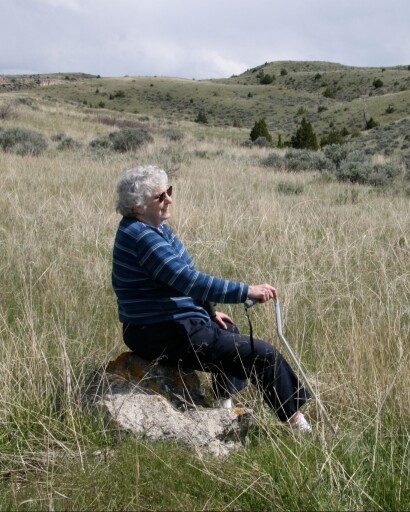

Virginia (Robbins) Gauss
May 3, 1931 — July 27, 2024
Lincoln, MA, formerly of Bozeman, Montana and Fiarbanks, Alaska
Virginia Gauss (nee Robbins) died peacefully after a rich, adventure- and curiosity-filled life on Saturday July 27, 2024. She is survived by her daughter and son-in-law, Alexandra and David Andrews and grandsons Edward Andrews and Buren Andrews of Hudson MA; her daughter-in-law Katherine Gauss, PhD, and grandchildren, Robin Gauss and Forrest Gauss of Bozeman MT; her sister Eleanor Arden Robbins of London, England; and brother George Howard Robbins of Rockland ME. Her son George Harry Gauss, PhD, predeceased her in May 2022.
She was born March 3, 1931 in Ambler PA to Eleanor Hart and George Appleton Robbins, where she enjoyed playing in the fields and growing vegetables with her father in their family’s wartime Victory Garden. She was often found visiting her maternal grandparents who lived “over the river and through the woods”. Among her childhood adventures was a trip in an open hull daysailer during what became a full-on hurricane in the mid-1940s on Mt Desert Island, where Ginger, her brother and sister and a friend managed to anchor safely in a cove and ride out the storm until morning.
Ginge attended Springside School in Chestnut Hill, PA, finishing her schooling at Milton Academy in Milton MA. She earned a BA in Music History from Wheaton College in Norton, MA. Shortly after graduation, her family took a driving trip to the UK, where she sharpened her driving skills on the “wrong” side of the road over the twisty-windy back lanes of England. Upon returning home, she became an assistant to a first-generation Montessori teacher in suburban Philadelphia.
A few years later she was traveling in Europe, and met Ed Gauss, who was to become her husband for 22 years, while they both were attending a summer German language class in Nudlingen Bavaria. Ginger followed Ed back to Boulder, CO where she continued to teach. This time it was in Longmont CO where the children were mostly from farmworker families; this was a huge cultural shift from the mostly upper-class children she had taught in suburban Philadelphia.
While in Colorado she learned to rock-climb and began hiking the “fourteeners”, the 14,000+ ft elevation peaks of the Continental Divide. Ed and Ginger married in 1954 and soon moved to Santa Monica California, where Ed was finishing his graduate work. As a southern California housewife, Ginger designed and sewed a full set of sails for the small daysailer she and Ed built with materials from the Douglas Aircraft surplus store, along with a small tipi-shaped tent. They took many weekend road trips for ski, climbing and camping trips to Yosemite and Lake Tahoe from the LA area.
Daughter Alex (nee Christy Gauss) was born, and 1960 found Ginger and Ed driving up the ALCAN (Alaska) highway to Fairbanks, Alaska where Ed took a post-doc position at the University of Alaska’s main campus. The 3700-mile journey from LA to Fairbanks (50% on gravel roads) meant camping by the side of the road, sleeping in their home-built trailer/camper refashioned from a pickup truck bed, and washing cloth diapers in streams of glacier melt. They arrived in Fairbanks in September, just as it began to snow, and Ginger did the family food shopping on foot with baby Alex wrapped up in furs in a cardboard box strapped to a toboggan. A year later they bought a small house on the Chena River in a new Fairbanks subdivision, and son George was born in 1962.
Bagging peaks and rock-climbing were soon replaced by camping trips to salmon fishing and hunting for moose and caribou trips to fill the family freezer. Ginger also learned to fly a small single-engine airplane, achieving her first solo fight in her late 30s. She was active in the garden club scene (a small town of 17,000 residents back then, Fairbanks had at least TWO garden clubs!). Ginger also served in the League of Women Voters and served on the Urban Beautification Commission, which was charged with making Fairbanks more picture-postcard-friendly for the booming tourist industry and incoming Alaska Pipeline executives and workers.
In the early 1970s, she was hired as the Fairbanks North Star Borough Gardener where she designed and planted summer flowers in the town’s public spaces and managed a summer crew of a half-dozen mostly VISTA workers from outside Alaska. When the 90-day growing season was over, she drove the Borough’s Zamboni to groom the Recreation Department’s many hockey rinks.
A few years later, as pipeline construction wound down and Fairbanks’ fortunes changed, Ginger retired from her hard-labor job as Borough Gardener and Zamboni Driver to begin working at the University of Alaska’s Research & Experimental Farm and had both hips replaced. Ginger spent many happy years as “Tomato Gal”, working on several research projects including hand-pollinating tomatoes and picking strawberries. Ginger’s lifelong interest in native plants continued to find many expressions, and she is remembered in the Georgeson Botanic Gardens (at UAF) as one of the early Fairbanksans who inspired the creation of the garden and the Alaska Native Plant Society. She made many dear friends in Alaska’s close-knit community of plant experts, among them Pat Holloway, with whom she later collaborated on a book on Alaska native plant propagation.
Soon after surviving a bout with breast cancer in 2001, Ginger decided to move to Bozeman MT where her son George and his family lived, opting for a kinder winter and “bigger medicine”. She and Pat Holloway drove the Alaska Highway south to Montana, a joyous journey replete with many plant-identification forays. Ginger settled in Bozeman, indulging in a life-long dream of designing and building her own house (her father was an architect) in the foothills of the Bridger Mountains just outside town. She communed with many other plant people in the Montana Native Plant Society, as well as gardening and decanting at the Tinsley House, a demonstration homestead museum and garden connected with Bozeman’s Museum of the Rockies.
Ginger went on to join the dedicated team of “fossil scratchers” at MOR, volunteers trained with paleontologist Jack Horner to carefully pick off, with dental tools, the eons of mud and sand from the fossil samples his team collected. She especially enjoyed talking with the schoolchildren on field trips to the museum, and became, effectively, an expert in the Socratic method for every dinosaur-loving visitor.
When she wore out her original hip replacements, and began needing semi-monthly injections to treat macular degeneration, Ginger opted to take advantage of “even bigger medicine” near her daughter in the Boston area. There she had two more hip replacements (revisions) in the early 2010s, and eventually moved in with Alex and her family in 2014. Adjusting to her increasingly limited vision, hearing and mobility with good humor and humility, Ginger continued indulging her lifelong interest in history by attending lifelong learning classes in many subjects, including Thoreau and Emerson, the Persian Empire, the French Revolution and the Rise of Napolean, History of China and many others. She, along with 23 boxes of books and CDs, eventually moved into her own apartment in a CCR community in Lincoln, MA where she lived, ever-curious, enthusiastic and fully engaged in life until the very end.
“The world is so full of a number of wonderful things, I’m sure we shall all be as happy as kings.” - Robert Louis Stevenson
Guestbook
Visits: 191
This site is protected by reCAPTCHA and the
Google Privacy Policy and Terms of Service apply.
Service map data © OpenStreetMap contributors


